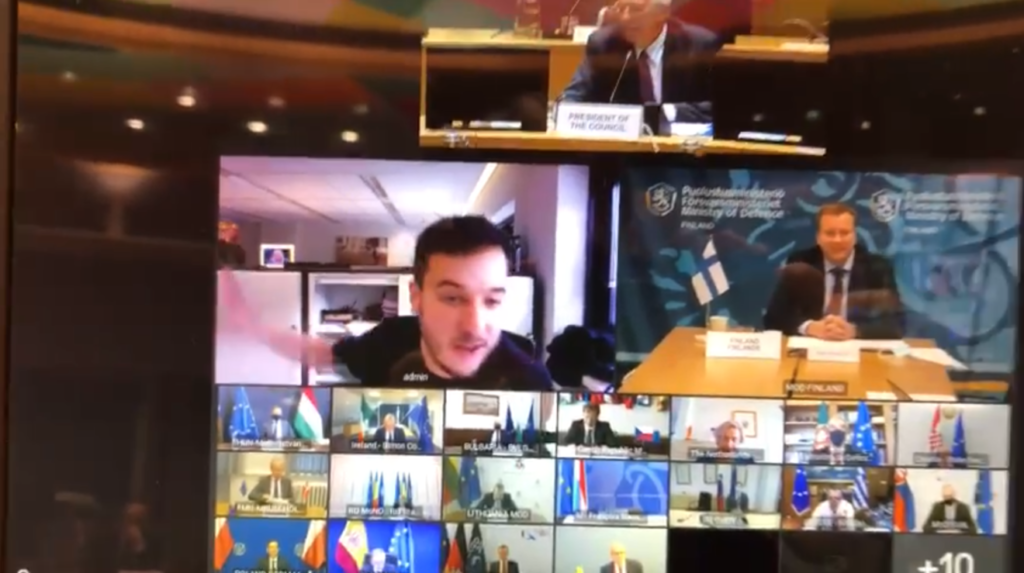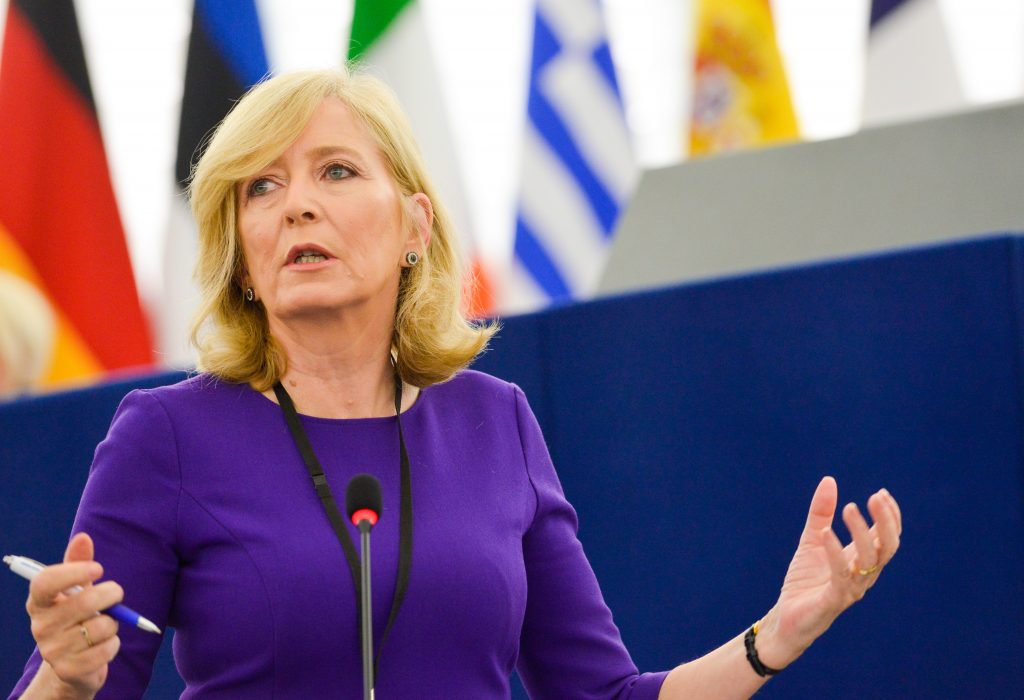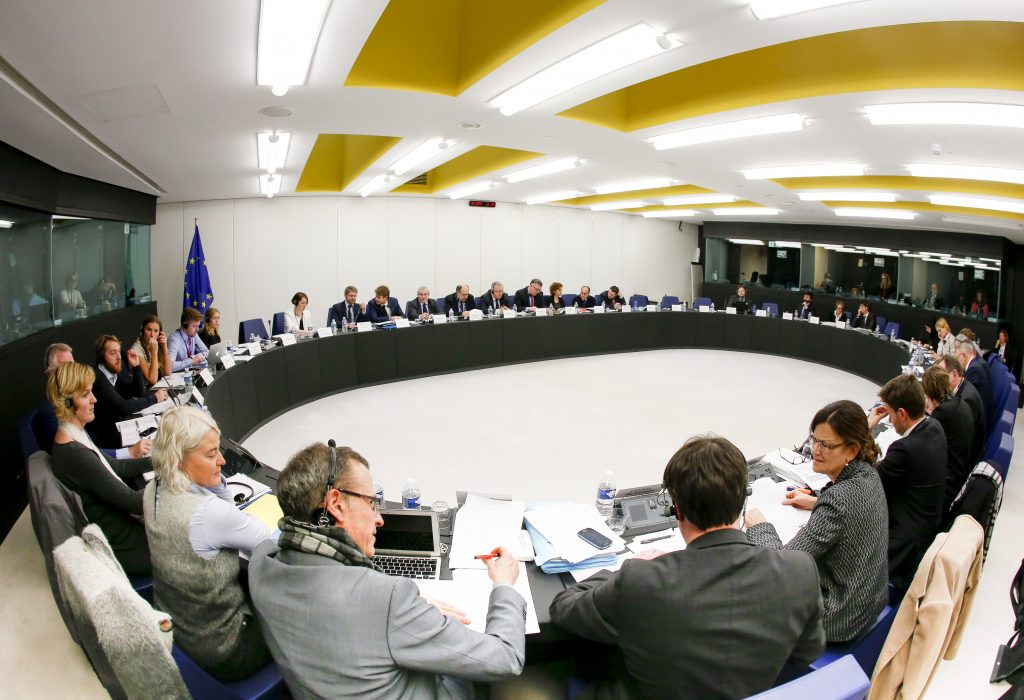Ombudsman considers that initial Council measures were “not in line with the Treaty” and regrets transparency gaps, but stops short of declaring maladministration.

On 24 March 2021 European Ombudsman Emily O’Reilly delivered her decision in the strategic (own-initiative inquiry) concerning the transparency of Council decision making during the Covid-19 pandemic. This inquiry was opened in July 2020, a few months after the outbreak of the pandemic.
The Ombudsman’s decision
The inquiry concluded with the finding that the Council, by reverting to ‘informal Council meetings’ had breached the treaty obligation to deliberate openly on legislative files. She furthermore observed that the Council did not disclose the records documenting the decision-making process leading to the temporary derogation of the Council’s rules of procedure until months after the decision had been taken, and then only upon request of a member of the public.
Nevertheless, finding that transparency gaps that had emerged after the initial change of internal procedures had been remedied and the aforementioned documents had now been published, the Ombudsman did not conclude that inquiry had found instances of maladministration. At the same time, she did issue recommendations for improvement. One of these included that the Council should remain in place the new practice by several lower-level preparatory working parties to document member state inputs into decision-making files. The Ombudsman found that this practice, which emerged out of necessity because of the limited opportunity for in-person contacts between member state officials in these working parties, in fact significantly improved the document trail of these decision-making files.
The Ombudsman also observed that, during the pandemic, the Council designated many working documents in legislative procedures with the administrative predicate “WK”. Such “WK” documents are not cited on the registered and are only from time to time added to a list that is mentioned on the register. The Ombudsman recalled that she had already criticised this practice in her 2018 inquiry on the transparency of the Council’s legislative work.
Temporary lapse
The Ombudsman’s conclusion of the inquiry seems to come after the transparency gap had already been remedied. As the decision states:
As the COVID-19 crisis continued, the Council took steps to make these remote meetings of national civil servants more transparent, notably by publishing agendas ahead of such meetings. The Ombudsman welcomes the steps taken. She considers, however, that more could be done and is making three further suggestions for improvement to that effect.
This conclusion seems to have motivated her decision not to find any maladministration at the present time. In her submission of the findings to the Council, the Ombudsman requests a response as regards the Council’s follow-up on her recommendations by the end of June “if possible”. In her previous inquiry, the Council did not meet a similar suggested deadline.
The Ombudsman’s report appeared on the same day that the Council Secretariat released its draft annual report of the implementation of Regulation 1049/2001 on access to its documents for the year 2020. It notes that
At the time of the publication of this report, the Council had not received any further information on this matter [related to the inquiry] from the Ombudsman.
The report’s own assessment of the Council’s handling of its transparency obligations clearly departs from that of the Ombudsman. The Council observes that the adherence to deadlines for access requests in fact improved compared to the previous year, in spite of the pandemic. It considers the Council has done a good job.
In conclusion, the measures taken by the Council can be summarised as ensuring continuity of decision-making in full respect of transparency requirements.
This disagreement over the representation of the situation suggests a degree of miscommunication and, possibly, friction between the two EU bodies. A recent publication by two researchers of the TrUE project, which manages this blog, highlighted similarly complaints about unbalanced or unfair treatment in the Ombudsman’s discharge of her duties, in the particular case regarding to the question of trilogue transparency obligations.
Written exchanges about the same question with the Presidents of the Commission and European Council did not lead to in-depth inquiries.
Background to the Covid-19 inquiry
As part of the recently concluded inquiry, the Ombudsman investigated transparency and documentation practices in five salient decision making processes that were in course during the pandemic.
They were: (1) Council Regulation 2020/672 (rapid response instrument for mitigating unemployment, known as SURE); (2) Regulation 2020/696 (amendment of common rule for the operation of air services during the pandemic); (3) Decision 2020/701 on macro-financial pandemic assistance to enlargement and neighbourhood partners; (4) Council Decision related to a confirmatory application; and (5) Council Decision 2020/789 renewing a strategic agreement with India.
The Ombudsman’s team found considerable divergences between the modi operandi and document trails of these procedures that it did not consider solely attributable to functional considerations.
Given the Council’s positive self-assessment in its annual report, it remains to be seen if its response to the Ombudsman’s recommendations will offer further changes or insights.
In addition to the transparency concerns raised in relation to the Council, security concerns have also been flagged up. In November 2020, Dutch data journalist Daniël Verlaan (pictured above) managed to hack into a Common Foreign and Security Policy Council meeting that was supposedly confidential, using a primitive hacking method. He described the easy of this security breach as concerning. The Council responded with a threat to prosecute the journalist for his illegal incursion.


